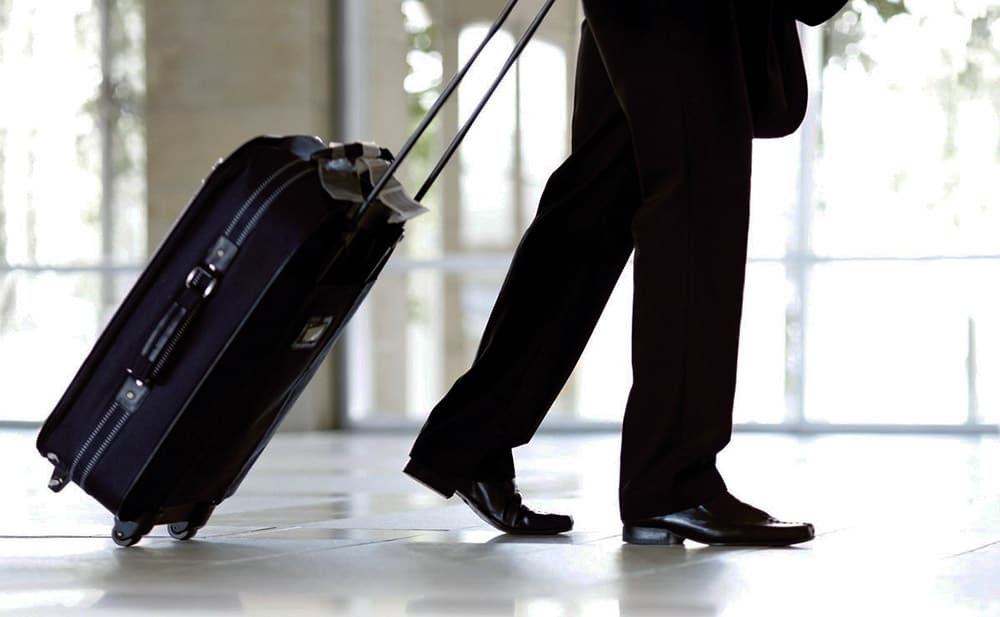Financial pointer: Can you reimburse incidental overnight expenses?
In the mobility industry, there are times when employees may need to stay away overnight on business, such as sales representatives visiting retailers or a team going to visit an industry trade show.
Many employers are aware of how to reimburse travel and subsistence expenses for employees who are expected to travel for business purposes, however, reimbursing employees for those smaller incidental expenses that they might pick up during overnight business stays can be less clear.
David Redfern, tax preparation expert and director of DSR Tax Claims Ltd explains how to reimburse these incidental overnight expenses according to HMRC’s tax exemptions.
 Guidance for employers and employees for incidental business expenses
Guidance for employers and employees for incidental business expenses
By David Redfern
When reimbursing employees for expenses relating to overnight business travel, most employers are aware that expenses relating to travel and subsistence are reimbursable without incurring income tax providing they are only reimbursing actual costs. Transport costs, hotel bills and food expenses are all considered to be an essential part of business travel and are therefore easy to treat for taxation purposes as long as the business travel is considered to be a qualifying period.
However, employees may pick up additional incidental expenses when on overnight business trips and it can be harder to know how to treat these.
“While travel and accommodation costs are considered to be a necessary part of business travel staff members may pick up other expenses such as laundry costs, newspapers or phone calls home which are not incurred during the purpose of their employment duties but that they wouldn’t have incurred had they not been travelling for business purposes,” states David.
“HMRC recognises that these expenses, while not strictly business-related, have only been picked up due to business travel and therefore allows them to be reimbursed without being taxed providing certain conditions are met.”
This tax-free exemption is allowable whichever method of reimbursement is chosen, including non-cash vouchers, use of an employer’s credit card or cash payments to the employee.
As with essential business travel costs, the expenses must be incurred during a “qualifying period” of business travel.
David explains: “There must be a continuous period throughout which the employee is required to stay away from home and it must include at least one overnight stay. In order for these reimbursements to be compliant with taxation legislation, the employee must have a place where they normally live which they are expected to stay away from for at least one night – if the employee doesn’t have what we might consider to be a home in the sense of having somewhere they normally live, these expenses are not reimbursable.
“Nor are they reimbursable if they choose to stay at home for the duration of the business trip – for example, in the case of a business trip which is close enough for the employee to commute to on a daily basis from their home”.
HMRC has issued permitted amounts that it will allow to be reimbursed on a tax-free basis for incidental overnight expenses incurred during business travel. For business travel including an overnight stay within the UK, an amount up to £5 per night can be reimbursed without being taxable.
For overnight stays for business outside of the UK, this permitted amount increases to £10 per night.
“Where the amount exceeds the amount permitted by HMRC, the whole amount becomes taxable not just the excess unless the employee pays back any amount over the permitted amount within a reasonable time, so it is advisable to stick to the permitted amounts when reimbursing these incidental amounts,” adds David.
“If the business travel is over more than one night and the employee is reimbursed more than the permitted amount but doesn’t exceed the total amount permitted for the whole business trip, this will still be exempt for taxation purposes.”
In order to remain HMRC compliant when reimbursing incidental overnight expenses, three areas must be considered – that the amounts fall within the amounts permitted by HMRC, that there has been a qualifying period of business travel for the employee and that the travel and associated expenses are ‘wholly and exclusively’ for business purposes.
“For the expenses to be tax-exempt, they must have been incurred for business purposes only – any travel without clear business intent, that could be seen as remuneration by other means will not be covered under this exemption and nor will dual-purpose travel, where a business trip has been combined with personal travel,” finishes Redfern.
Expenditure that meets these conditions can be reimbursed as tax-exempt.
https://thiis.co.uk/financial-pointer-can-you-reimburse-incidental-overnight-expenses/https://thiis.co.uk/wp-content/uploads/2019/10/businessman-hmrc.jpghttps://thiis.co.uk/wp-content/uploads/2019/10/businessman-hmrc-150x150.jpgFinancial PointersKnowledge Hubaccountancy,David Redfern,DSR Tax Claims,expenses,HMRC,incidental expenses,Mobility,mobility retailers,mobility suppliers,overnight expenses,taxIn the mobility industry, there are times when employees may need to stay away overnight on business, such as sales representatives visiting retailers or a team going to visit an industry trade show. Many employers are aware of how to reimburse travel and subsistence expenses for employees who are expected...Calvin BarnettCalvin Barnettcalvin.barnett@bhta.comAuthorTHIIS Magazine



 Guidance for employers and employees for incidental business expenses
Guidance for employers and employees for incidental business expenses